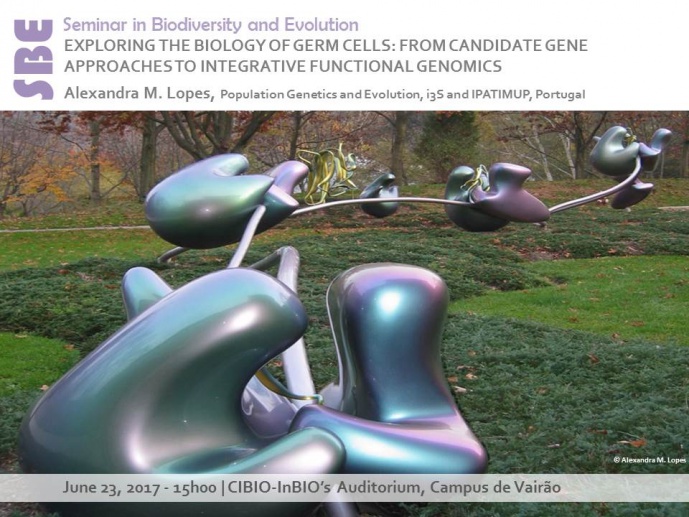EXPLORING THE BIOLOGY OF GERM CELLS: FROM CANDIDATE GENE APPROACHES TO INTEGRATIVE FUNCTIONAL GENOMICS


Germ cells represent a niche in any organism. In particular, male germ cell development in mammals is a remarkable process involving mitotic proliferation of spermatogonial cells, meiosis in spermatocytes and spermiogenesis, the haploid phase with drastic morphological and functional spermatid differentiation. Several layers of regulation orchestrate this process and mechanisms of translational regulation are of utmost importance due to the global transcriptional shutdown that occurs in mid-spermiogenesis when histones are replaced by protamines. This raises the question of how protein synthesis is efficiently activated in a timely manner to allow the completion of spermatogenesis. Recently a role for the eukaryotic ribosome in translation control has emerged, through the action of specific ribosomal proteins (RPs). Interestingly, expression of some human and mouse RPs is restricted to the male germline and several show variable expression throughout gametogenesis. Moreover, the genes expressed in the male germline are exposed to evolutionary pressures linked to reproductive fitness and to lineage-specific phenomena such as meiotic sex chromosome inactivation. A better understanding of male germ cell biology from an evolutionary and functional genomics perspective is essential for the identification of the determinants of male fertility that will impact on the transmission of genetic information between generations.
Alexandra M. Lopes obtained her PhD in Biology in 2006 from the Faculty of Science of the University of Porto, Portugal. Following her PhD she was a postdoctoral fellow at the University of Cambridge, UK, and currently integrates the Population Genetics and Evolution group at IPATIMUP/i3S (IF2014 starting grant). Alexandra's research has focused on several aspects of sex chromosomes evolution and reproductive biology, namely the impact of chromosome structural rearrangements in the patterns of genetic diversity in human populations and in male infertility. Currently she is developing a new research line on the translational control of spermatogenesis and the role of ribosomal proteins.
[Host: Catarina Pinho, Population Genetics, Hybridization and Speciation and Applied Phylogenetics]
Image credits: Alexandra M. Lopes